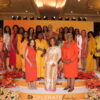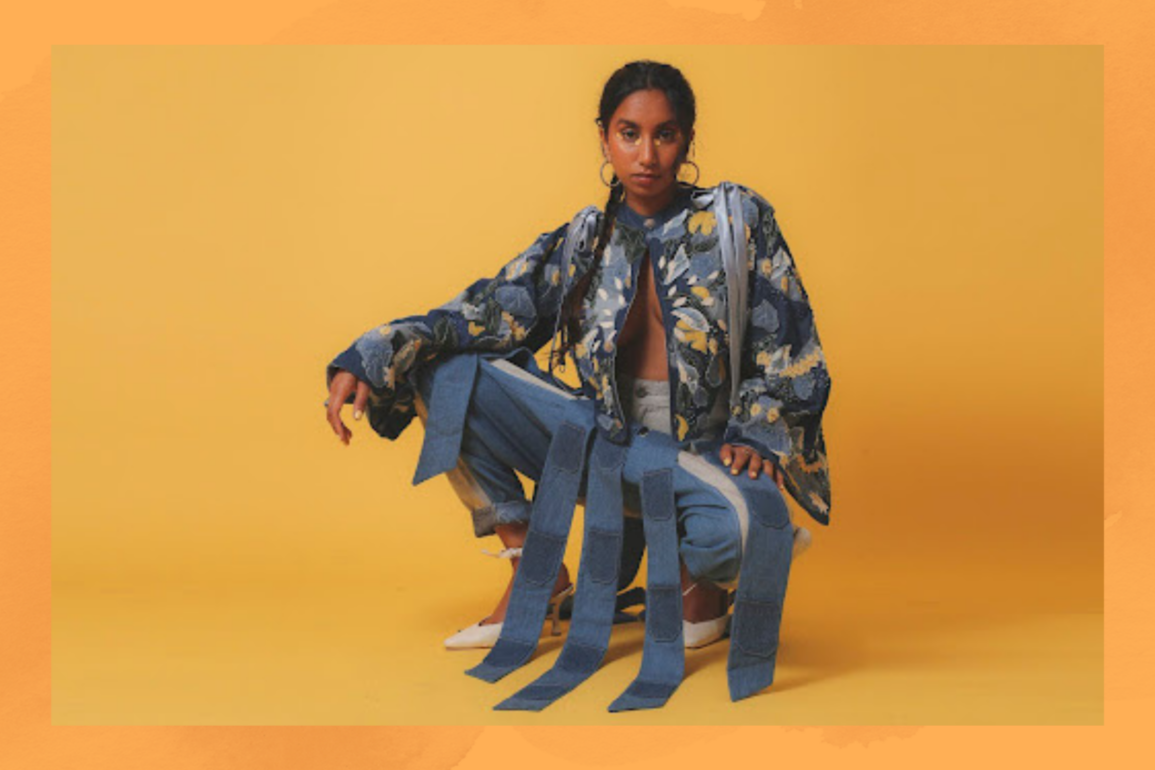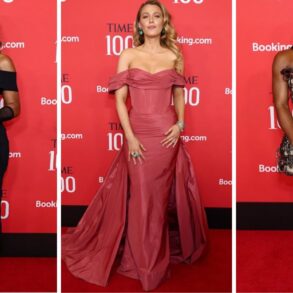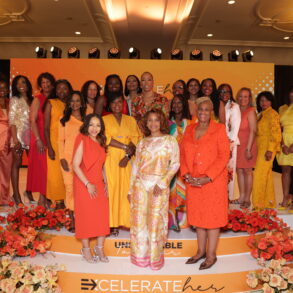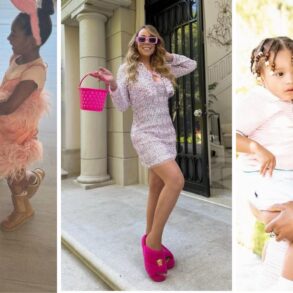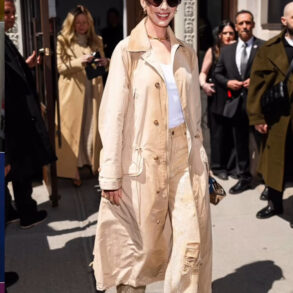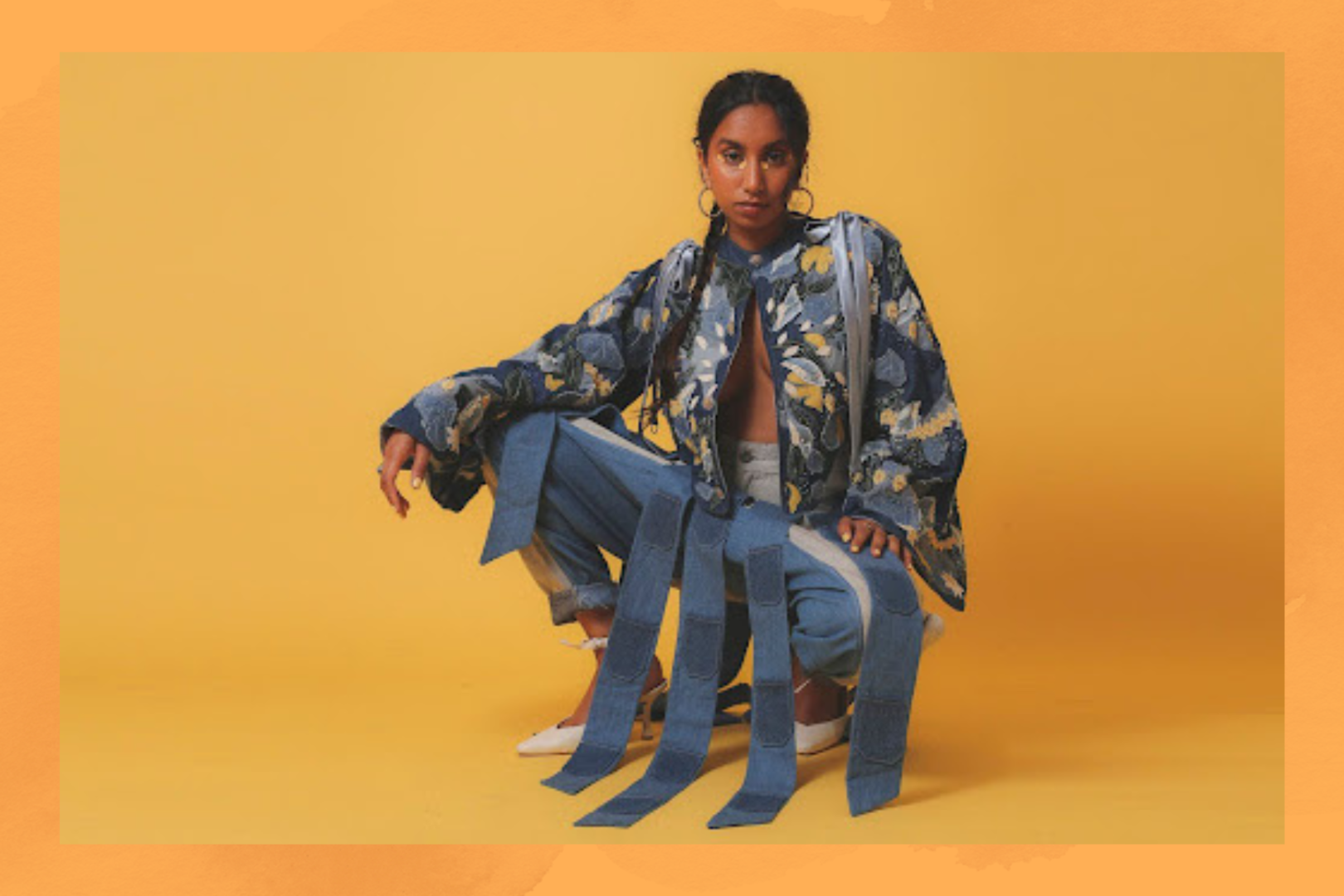
“I come from a legacy of seamstresses, from women I don’t even know,” —Jasmin Nessa Ali
Nessa Ali, a fashion designer from Queens, New York, describes her inspiration for creating NESSA, a womenswear fashion brand that sews elements of New York City streetwear and Guyanese pride. The art of sewing and creating in Guyanese culture isn’t a new phenomenon but one ancestrally rooted in survival and creative expression. Ali invokes this art by creating pieces that pay homage to Indo Caribbeans and their multifaceted identity, infusing streetwear pieces like cargo shorts and cropped hoodies with lenghas, gold and sarees.
Her first collection, “Jumbee and Rum,” adheres to the spirits that haunt Guyanese women, a story between Jasmine and her maternal lineage. It serves as a reflection of the Jahajee, a term used by indentured workers, meaning shipmates, who were manipulated to voyage unknown lands, chained to sugar estates and riddled by the spirits of colonialism. Ali forges a new path for young Guyanese creatives to embark on cultural storytelling through distinct fabrics and silhouettes of their history.
[Read Related: Introducing Indo Trinidadian Fashion House Shoma the Label]
Inspiration Behind NESSA
As a child, cutting and sewing clothes became a hobby for Ali, as she would draw and design little dresses on her lap at lunchroom tables. During her senior thesis project, this hobby soon manifested into a full fashion brand.
“That’s when I realized, okay, NESSA could be really cool,” Ali said. “Women in my lineage, well, Guyanese women, know how to adorn themselves; we have such an inclination to be divas, to dress up and wear our gold. So when I realized that I might even come from a line of seamstresses that some of them, I don’t even know of, my grandma doesn’t even know of, I was like, Oh, this makes total sense; it’s like a legacy.”
Ali is currently based in Baltimore, Maryland, where she produces her handmade designs in her bedroom studio. She is a one-woman show with generational support from her mom, aunts, grandmothers, sister, partner and best friend.
She begins her creative process through sketching or full illustrations, where she takes references from Guyanese fashion. Here, Ali invokes traditional silhouettes of sarees and lenghas while incorporating streetwear and avant-garde/modern silhouettes. “I also do my own fabric sourcing, some of my favorite fabric stores are on Jamaica Avenue in Queens. I’ll plan my trips back home to shop in Queens.”
Guyanese Culture and Urban Streetwear
From aunties being dripped in gold with elaborate sarees to uncles with boxy loose button-ups, Guyanese fashion is a term that is evolving and shaping intergenerationally. Ali notes that her idea of Guyanese fashion might differ from the next Guyanese person, but the beauty of it is that it’s always ever-changing and not a solidified look.
“Guyanese fashion is forming and coming into fruition and there is so much room for other Indo Caribbean creatives and fashion designers to come to the table and make it something recognizable, where it feels right. When I think about Guyanese fashion, I think about Guyanese weddings, where they look extravagant, rich, lush lenghas and sarees, but what makes it non-Indo Caribbean based is our intersectionality and being from tropical places. Guyanese fashion has a little more inclination to show skin that comes from carnival culture. So it’s definitely forming,” Ali said.
Ali also strategically places a Guyanese flag into each of her pieces as a way to ground and connect to her identity.
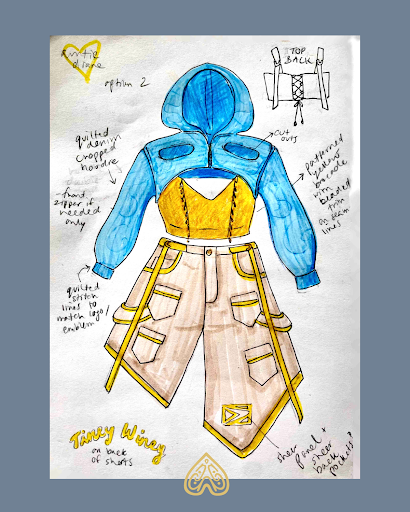
Guyanese Creatives as Record Keepers
As a culture that has experienced erasure through colonization, Ali notes the importance of Guyanese creatives who reference their culture as record keepers.
“It’s always important to ask our aunts and uncles and our grandparents, tell me about this, where this comes from, and learn about the history of different objects, foods and languages. Guyanese people in the fashion industry who reference their culture need to do their research and understand that as an American-born Guyanese person, you should also be a record keeper to protect the history and culture. It’s important we don’t lose a lot of it” Ali said.
Challenges in the Fashion Industry
Battling with imposter syndrome has been a challenge for Ali, especially navigating people’s perceptions because of her race, gender and age. She also recalls the struggle of breaking through in the fashion world, “I’ve been belittled because of my age, because I’m a girl, because of my lack of experience. It’s hard to break into the industry and get those design roles even if you have a BFA. I do think I get underestimated because of my age, race and experience.”
Despite this, however, Ali believes that sometimes you don’t need to be at the fashion table if it is not serving you, if something isn’t made for you, make it yourself.
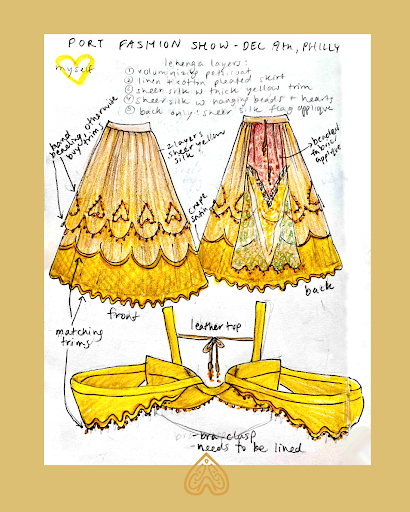
Future Goals
Ali hopes to create more than just a fashion brand but a cultural connector that unifies and spans all Caribbean identities while addressing racial divides. She hopes that the reputation of NESSA will attract attention to Caribbean carnival culture.
“Because carnival is a fashion show, it takes artists to make those. I would love to host a NESSA fete in the states, the islands and Guyana to highlight the fashion and throw a huge party while simultaneously bringing the different cultures and ethnicities in the Caribbean together. There’s always that underlying issue of racial disunity in the Caribbean, so I see NESSA as a cultural connector just fighting those things that the older generation didn’t do their best to overcome.”
For all Guyanese kids growing up in Queens, NESSA taps into the intersections of our hyphenated identities across generations. The future of NESSA and other cultural creative brands are pathways to reimaging fashion and art while forging a new meaning of Guyanese identity.
To learn more and shop, visit nessathebrand.com and @nessa.thebrand on Instagram.
This post was originally published on this site be sure to check out more of their content.


